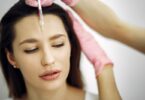A beautician’s job covers different areas in the beauty industry. They offer relaxing treatments and expert assistance to those who want to refresh their look. People who also want to take care of their skin can also look for beauticians for service and advice.
The best thing about being in the beauty industry is you get the chance of learning every aspect of beauty. While beauticians have limited services, you can still study skin cosmetology. This way, if you ever want to become a cosmetologist, you’ll have a greater advantage. Not only that but it also helps you advance your career in the industry.
This article will provide you with a clear understanding of skin cosmetology basics. This includes different skincare ingredients and which skin types they are best used with. But first, let’s find out how beauticians differ from cosmetologists.
Beautician and Cosmetologist: What’s the Difference?
Most people think beauticians are the same as cosmetologists. While there are overlapping duties between the two, their differences lie with which job they prioritize more. Generally, cosmetologists have more comprehensive training and expertise in beauty treatments.
Let’s look at some of the aspects that differentiate the two.
Education and Board Licensure
Both cosmetologists and beauticians go through beauty schools and have the same subjects. You get broad training in hairstyle, cosmetics application, and nail painting when you decide to become a beautician.
On the flip side, cosmetologists receive the same education but can choose to specialize in certain aspects of beauty. Typically, beautician schools do not have these specialized courses.
When it comes to licensure, both professions are required to have a license before they can work. Most states, like in Illinois, do not differentiate between cosmetologists and beauticians. To be eligible for the licensing board exam in Illinois, you need to complete 1,500 hours of beauty courses.
To get a license as either a cosmetologist or a beautician, you need to pass the cosmetology board exam. Every licensing board exam has a written and practical portion. They cover everything you learned in beauty school. That’s why most board takers allocate enough time to prepare for the exam.
The best way to do this is to answer practice tests. Some best cosmetology practice tests include questions from previous yearly exams. More importantly, they focus on topics that you’ll encounter in your cosmetology exam.
These cosmetology state board practice tests will help you juggle up your memories. If you’re not ready to take the state board exam, you can use these free cosmetology practice exams.
Job Description
Cosmetologists are those who are experts in skin care, nail care, and hair care. They are trained to provide skincare treatments, style hair, apply makeup, and do manicures and pedicures.
On the other hand, a beautician works in a salon, most commonly as a hairstylist. However, beauticians can also provide personal care services, such as manicures, brow waxing, and makeup application.
The best way to differentiate the two is to remember that all cosmetologists are beauticians. This is because they can provide services similar to beauticians. However, not all beauticians are cosmetologists since the latter have advanced knowledge in certain areas, like product ingredients.
Cosmetologists have more in-depth learning regarding the components of products. It involves chemistry and other sciences to determine if an ingredient is good for you. It also allows us to know if two good ingredients can be used alongside each other.
Common Ingredients in Skincare Products
There’s no denying that not all skin is created equal. But aside from race and age, each person has a different skin type. Genetics, age, and the environment all play a role in determining your skin type. And these skin types determine how much sebum you produce, and your tendency for specific skin problems, such as acne.
While skincare products improve the skin in different aspects, not all of them can be used for all skin types.
The ingredients in all skincare products can be categorized into three groups. These are vitamins, acids, and SPF. Continue reading to know what ingredients are in these categories and which skin type they are best used for.
Vitamins
-
Vitamin A (Retinoids or Retinol)
Retinoids help generate healthy skin cells, skin cell renewal, and collagen. Vitamin A keeps skin tight and healthy, and it’s also available in lower concentrations. You can find retinoids in store-bought skincare products with the ingredient called “retinol”.
Retinoids should be used in moderation up until your client gets used to them. They can start with once a week and then go to two or three alternate evenings a week.
Best used for: Oily, acne-prone skin types
-
Vitamin B3 (Niacinamide)
Niacinamide helps decrease inflammation and redness caused by skin diseases like acne and eczema. This type of vitamin B3 also helps in other ways like:
- Maintaining moisture retention
- Reducing enlarged pores
- Softening fine wrinkles
- Improving skin texture
Niacinamide is an active component that is non-irritating and suitable for all skin types. It can be used every day in the morning and evening.
Best used for: All skin types
-
Vitamin C (Ascorbic Acid)
Vitamin C is a popular skincare component. It helps to brighten and level out skin tone, decrease dark spots, and smooth out fine lines and wrinkles. It also functions as an antioxidant, protecting the skin from pollutants and free radicals.
Your clients can start slowly by using it once or twice a week to ensure they don’t have any sensitivities. After they get used to it, they can use it every morning.
Best used for: All skin types except for sensitive skin
Acids
-
Hyaluronic Acid
Hyaluronic acid is found naturally in the skin and can store 1,000 times its weight in moisture. Unlike the other acids listed below, this type of acid is a humectant. Hyaluronic acid keeps the skin moisturized, hydrated, and seem plump and supple. That’s why you’ll usually find such ingredients in moisturizers.
Best used for: All skin types
-
Alpha Hydroxy Acids (AHAs)
AHAs are water-loving molecules. Because of this, they help hydrate and plump the skin. It’s important to remember that they can make the skin more sensitive to the sun. If your client needs this, advise them to always use an SPF in their skincare routine.
The most common AHA ingredients are glycolic acid and lactic acid. While both belong to the same group, they are used for different skin types.
Glycolic Acid is best used for: Normal, combination, and oily skin types
Lactic Acid is best used for: Normal, combination, dry, oily, sensitive, and acne-prone skin types
-
Beta Hydroxy Acids (BHAs)
BHAs are a group of oil-loving acid molecules that move deeper into pores. They help dissolve dead skin cells, blackheads, and excess sebum. BHAs have anti-inflammatory and antibacterial properties and they don’t make the skin sensitive to the sun. The most important BHA to be aware of is:
- Salicylic Acid
Salicylic acid is the most popular and extensively used BHA in many skincare products. Salicylic acid unclogs pores by breaking the connections that hold cells together in the pore lining. This allows oils to flow freely and be washed away. Advice your clients to start slowly, once a week, and then increase to two or three times a week.
Best used for: Oily, acne-prone skin type
-
Polyhydroxy Acids (PHAs)
PHAs are sometimes referred to as the “new age relatives of AHAs.” Like AHAs, they are water-loving molecules that help hydrate and plump the skin’s surface layer. PHAs have a bigger molecular structure than AHAs. This means they function primarily on the outermost layer of the skin and do not penetrate as deeply as AHAs.
Best used for: Dry and sensitive skin types
SPF
The SPF of a sunscreen indicates how well it protects the skin from dangerous UV radiation. It’s important to remember that UV rays can enter the skin even on overcast days and while indoors. That’s why using a broad-spectrum sunscreen with an SPF of 30 or greater every day is necessary.
Sunscreen also protects the skin from free radicals and pollution. Moreover, they shield the skin from sensitivities caused by products with AHAs, retinoids, and vitamin C pollution.
Best used for: All skin types
To Summarize it:
Being a beautician is a rewarding job. You get to do what you love the most while getting paid. Not only that but if you’re passionate about skincare, you can take a step forward and become a cosmetologist.
However, being a beautician does not guarantee you an easy process to become a cosmetologist. Since cosmetologists have extensive knowledge of areas like skincare, you still need to learn more about it.
You can start by being familiar with the common skincare ingredients. It’s also important that you have a clear understanding of which ingredient is best for each skin type. Your clients trust you with your expertise. With such knowledge, you can provide them with the best skin care service anyone can have.








